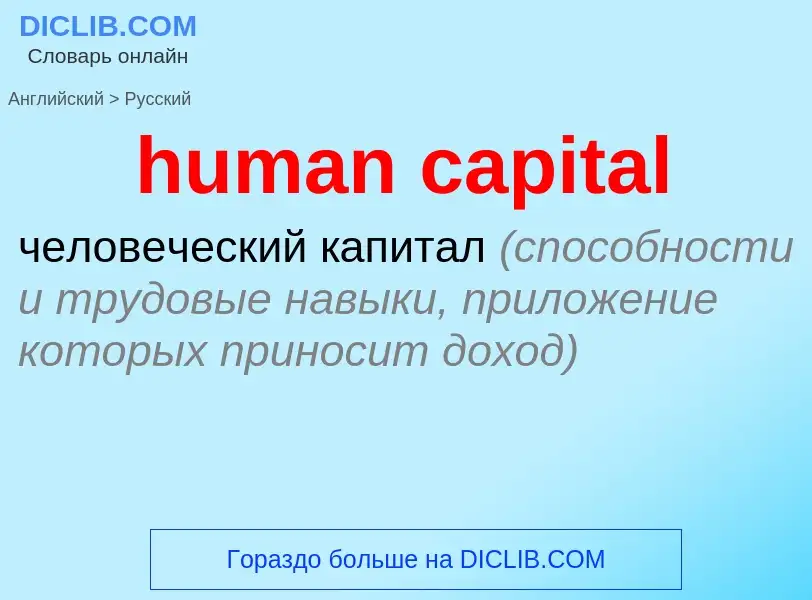Traducción y análisis de palabras por inteligencia artificial ChatGPT
En esta página puede obtener un análisis detallado de una palabra o frase, producido utilizando la mejor tecnología de inteligencia artificial hasta la fecha:
- cómo se usa la palabra
- frecuencia de uso
- se utiliza con más frecuencia en el habla oral o escrita
- opciones de traducción
- ejemplos de uso (varias frases con traducción)
- etimología
human capital - traducción al ruso
Definición
Wikipedia
Human capital is a concept used by social scientists to designate personal attributes considered useful in the production process. It encompasses employee knowledge, skills, know-how, good health, and education. Human capital has a substantial impact on individual earnings. Research indicates that human capital investments have high economic returns throughout childhood and young adulthood.
Companies can invest in human capital, for example, through education and training, enabling improved levels of quality and production.
As a result of his conceptualization and modeling work using Human Capital as a key factor, the 2018 Nobel Prize for Economics was jointly awarded to Paul Romer, who founded the modern innovation-driven approach to understanding economic growth.
In the recent literature, the new concept of task-specific human capital was coined in 2004 by Robert Gibbons, an economist at MIT, and Michael Waldman, an economist at Cornell University. The concept emphasizes that in many cases, human capital is accumulated specific to the nature of the task (or, skills required for the task), and the human capital accumulated for the task are valuable to many firms requiring the transferable skills. This concept can be applied to job-assignment, wage dynamics, tournament, promotion dynamics inside firms, etc.



